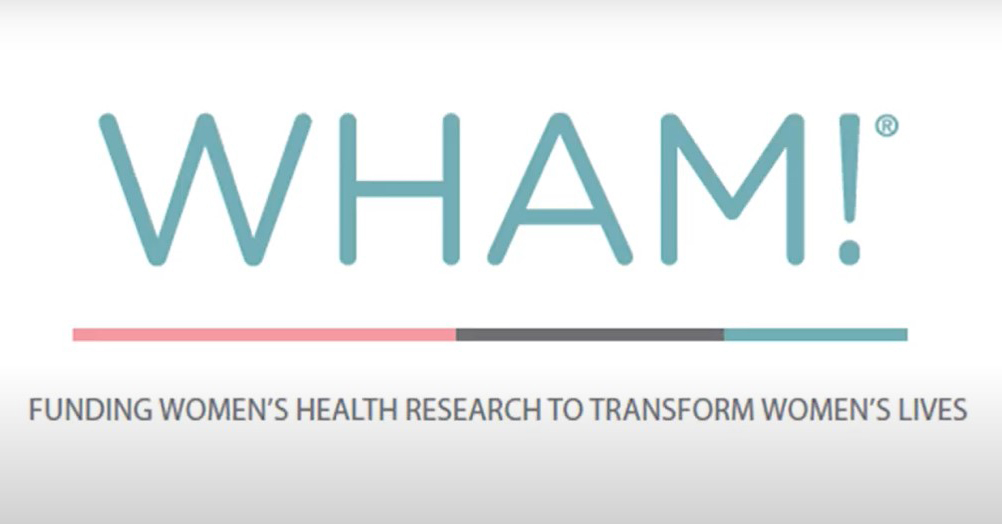Possible Societal Gains From Increased Investment in Women’s Health Research
This information was reviewed by the Laura W. Bush Institute for Women's Health's Scientific Council.

Large societal gains may be possible by increasing investment in women’s health research.
Women’s Health Access Matters (WHAM) is a nonprofit organization dedicated to exploring
and responding to the underrepresentation of women in health research, in particular
the inequities that exist when it comes to funding dedicated to improving the lives
of women. Such biases include:
- Women are 2/3 of the 5.7 Million people suffering from Alzheimer’s disease, yet 66% of the animals used in Alzheimer’s research are male or of unreported gender.
- Cardiovascular disease is the #1 killer of women in the US, yet only 1/3 of the participants in clinical trials are female
However, women remain the majority of the US population, responsible for 85% of consumer
spending, and make 80% of the healthcare decisions.
One of the initial objectives of WHAM was to commission the RAND Corporation to study
the economic impact of society were to increase the funding to invest in women’s health
research. By focusing on Alzheimer’s Dementia, Rheumatoid Arthritis, and Cardiovascular
Disease, the findings suggest the potential for societal-level value from investment
in women’s health research. Findings from the report include:
- Every dollar invested in Alzheimer’s disease research focused on women generates $3.24 in economic value and saves $1.24 in direct healthcare costs.
- Adding 20 Million dollars in cardiovascular research focused on women improves the quality of life, reduces healthcare costs, and adds over 12,000 years back to our workforce.
Investing in women’s health research yields benefits beyond investing in general research
and supports improved decision-making about research prioritization. We encourage
utilizing the results of this WHAM Report to drive meaningful change to improve women's
health.
Find out more at whamnow.org.

A member of the Laura Bush Institute's Scientific Council, Alyson McGregor, MD, is Professor and Director for the Division of Sex and Gender in Emergency Medicine at the Warren Alpert School of Medicine at Brown University. Dr. McGregor is the author of Sex and Gender in Acute Care Medicine and Sex Matters: How Male-Centric Medicine Endangers Women's Health and What We Can Do About It. She serves on the editorial board for the journal Gender and the Genome.
Related Stories
TTUHSC Cancer Researcher Honored by National Academy of Inventors
C. Patrick Reynolds, M.D., Ph.D., director of the School of Medicine Pediatric Cancer Research Center at TTUHSC, has dedicated his life as a researcher to developing treatments for childhood cancers.
TTUHSC’s Hudson Set to Serve as President for Society of Clinical Research Associates
The Society of Clinical Research Associates (SOCRA) has elected Texas Tech University Health Sciences Center’s (TTUHSC) Catherine Hudson, Dr.P.H., as its president for 2025-2026.
Clinical Research Institute a Source of Pride for Retiring Griswold
Upon his retirement, John Griswold, M.D., reflects on the Clinical Research Institute and what it has achieved.
Recent Stories
The John Wayne Cancer Foundation Surgical Oncology Fellowship Program at Texas Tech University Health Sciences Center Announced
TTUHSC is collaborating with the John Wayne Cancer Foundation and has established the Big Cure Endowment, which supports the university’s efforts to reduce cancer incidence and increase survivability of people in rural and underserved areas.
TTUHSC Receives $1 Million Gift from Amarillo National Bank to Expand and Enhance Pediatric Care in the Panhandle
TTUHSC School of Medicine leaders accepted a $1 million philanthropic gift from Amarillo National Bank on Tuesday (Feb. 10), marking a transformational investment in pediatric care for the Texas Panhandle.
Texas Tech University Health Sciences Center Permian Basin Announces Pediatric Residency Program Gift
TTUHSC Permian Basin, along with the Permian Strategic Partnership and the Scharbauer Foundation, Feb. 5 announced a gift that will fund a new pediatric residency.
